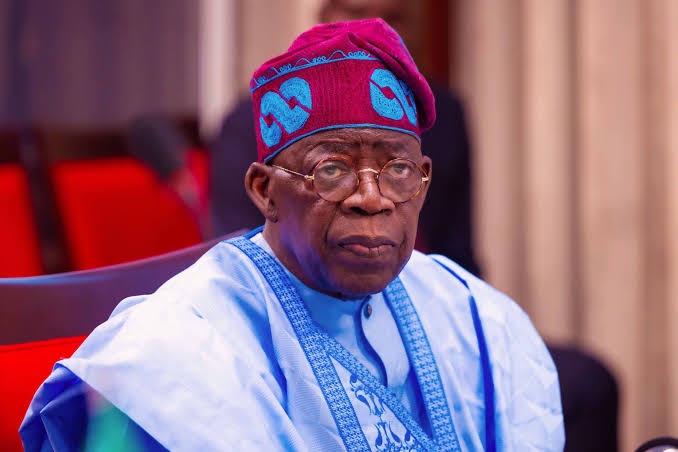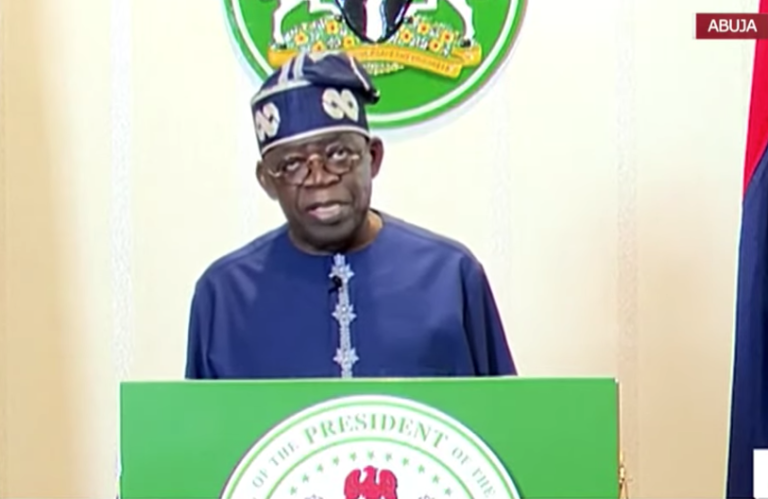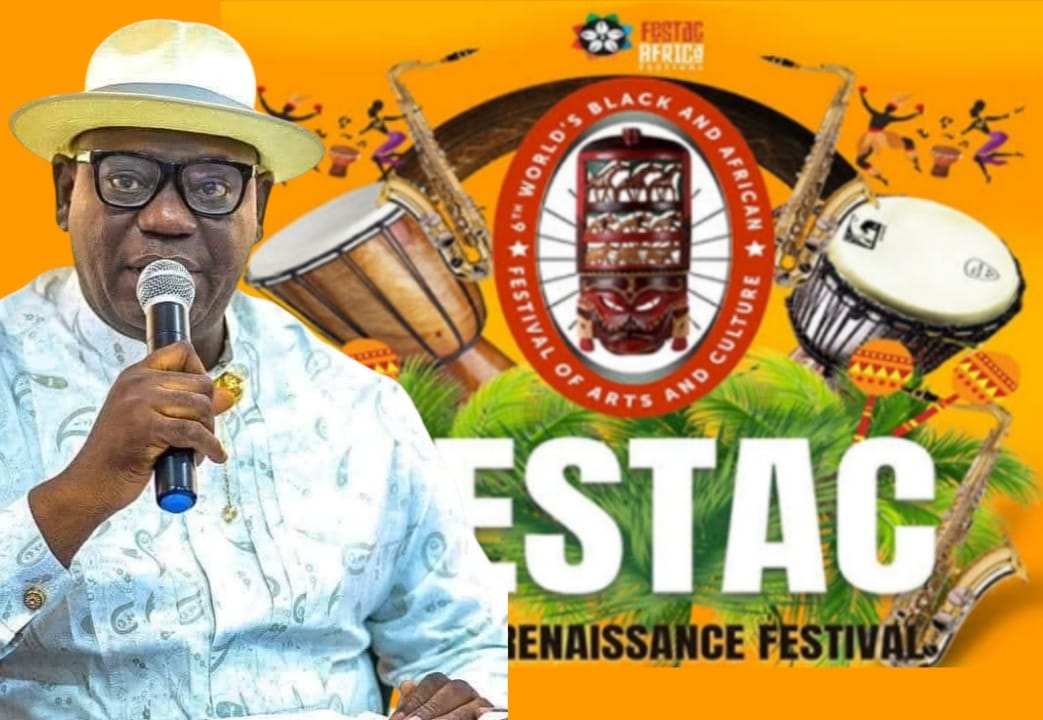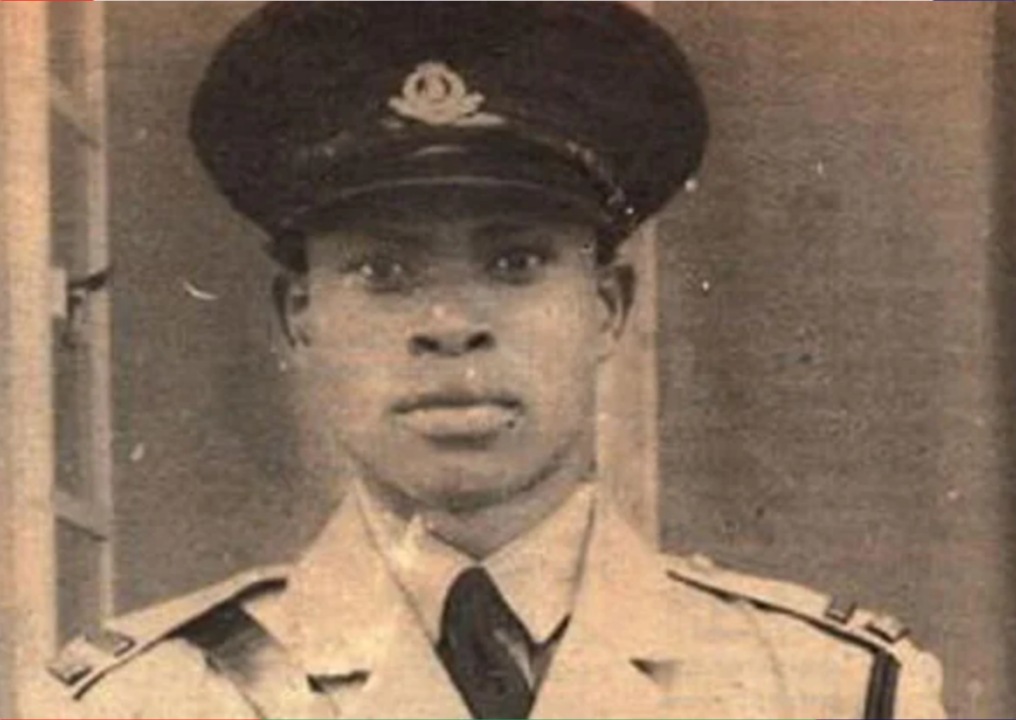[MEMORIAL LECTURE] The Ijaw Question and The Leadership Imperatives: Lessons From Chief DSP Alamieyeseigha's Legacies
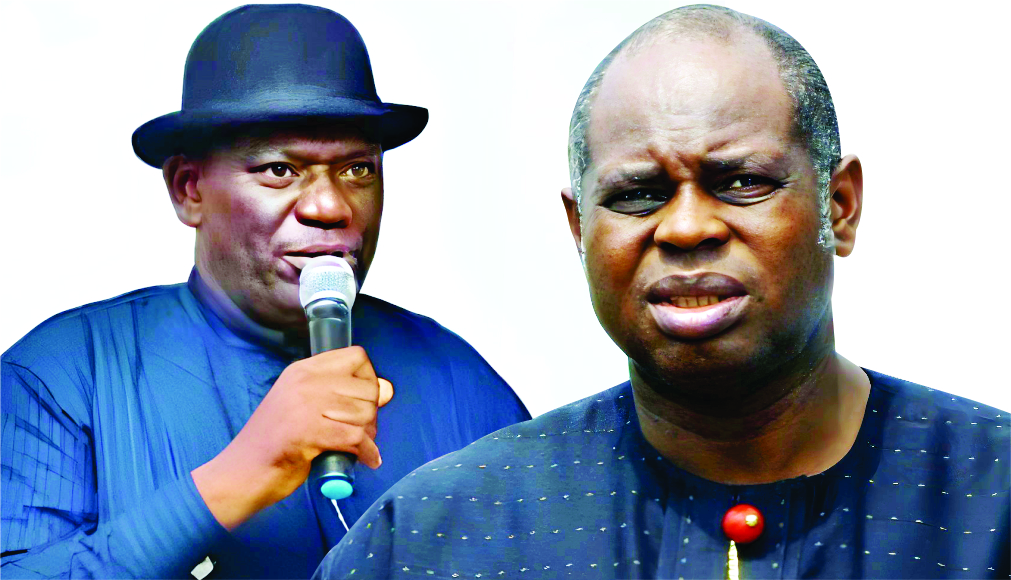
The below is the full lecture delivered by Professor Benjamin Ogele Okaba, the President of the Ijaw National Congress (INC) at the annual memorial lecture in remembrance of the first civilian governor of Bayelsa State, Late Chief Diepreye Solomon Peter Alamieyeseigha, which held in the DSP Alamieyeseigha Memorial Banquet Hall, Yenagoa, on October 10, 2023.
Divided into five parts, the presentation dwells largely on the challenges facing the Ijaw Nation and the need for the Ijaws to take a cue from the exemplary style of leadership showcased by the late governor-general of the Ijaw Nation towards proffering lasting solutions and achieving the vision of the Ijaw Nation as well as build on the legacies of "ALAMCO, the Amaebi Dou Owei 1 of Amassoma, the Ogbofini Owei I of Wilberforce Island, the Izonebi Dou Owei of lzon Nation, the Eze Ndigbo 1 of Afuruku community of Abia State, the Ganuwan Katsina and Justice of Peace" who Prof. Okaba maintained "lived a fulfilling live before he died." Excerpt:
1️⃣ Introduction
We appreciate God Almighty for His abundant grace and the Relative Peace and Tranquility we experience in our land. I must on behalf of the INC, commend his Excellency, Sen. Douye Diri, Executive Governor of Bayelsa State for this benevolent gesture for honoring our past heroes in grand style and as a function of the State, since assumption of office.
There can be no better way of encouraging and solidarizing with the families of these fallen heroes; and assuring and inspiring the living heroes and the younger generations, that their sacrifices are not and will not be in vain. I’m highly delighted to be considered worthy of presenting this year's Late Chief DSP Alamieyeseigha's memorial lecture.
It is my candid opinion, that discussing the Ijaw Question, and the leadership imperatives, leveraging on DSP Alamieyeseigha's impressive and intimidating legacies, at this point in our quest for a more prosperous Bayelsa State and a better Ijaw Nation, is most apt, germane and strategic.
There is no gain saying the obvious that most Nigerians, especially, Non-Niger Deltans and the rest of the world are often times worrisomely flabbergasted as to why there are incessant agitations, protests and upheavals in the Ijaw territory against State forces and their local and international collaborators. They are also perplexed that the Ijaws are the most famous, consistent and dogged advocates, activists and champions of the Niger Delta struggle for self-determination.
One School of thought believes that the insidious sense of abandonment, exclusion, marginalization, criminal neglect and denial of resource control in the face of our God given wealth, can be squarely blamed for the mass poverty, and general underdevelopment of Ijaw Nation and the Niger Delta Region – Okioma (2021).
Another School of thought, have postulated contrawise, that
resource control is a very important and necessary precondition but must not be seen as a sufficient ingredient for eradicating poverty and enthroning sustainable development in the Ijaw land and the Niger Delta; and that the campaign for true federalism, restructuring, derivation, resource control must be complemented with a dedicated quest for the visionary leadership, disciplined enough to exercise power in the interest of all, deploying administrative responsibility and competence to mass mobilize and judiciously manage resources (human and natural) in all spheres of governance in Ijaw Nation and the Niger Delta region, in line with the peculiar needs, dreams and aspirations of the people (Okaba 2007).
It is against this backdrop that I interrogate the Ijaw Question and the Leadership Imperatives, using the exemplary lessons from the legacies of DSP Alamieyeseigha as our case study.
2️⃣ Conceptualizing The Ijaw Question
The Ijaw question dialectically revolves around concerns such as: Who is a typical Ijaw man? What is the Ijaw man in and to the Nigerian hegemonic State? What is Nigeria to the Ijaw man? What is the future of the Ijaw man in and outside the Nigerian state?
We must of necessity continue to occasionally introspect and retrospect on these issues that constitute and define our Ijaw identity, Ijawness, the Ijaw heritage, the Ijaw existential threats and challenges and the Ijaw pursuit of self-determination and development. Scholars and intellectual militants, especially of Ijaw extraction have addressed these concerns over the years. The broken concept of Ijaw unity and desire to exist as a united area from onset of the balkanization (1939) unrealized critical demand of the Willink commission (1957) demand for a separate region for the Ijaws in the 1958 London Constitutional conference, the defeated motion to create the Calabar, Ogoja and Rivers (COR) at the 1963 parliament, and the recent Kaiama Declaration (1989) and the INC CONFAB POSITION (2014) are among some very many important reference materials on the subject matter. (Alagoa 1972, Tamuno 2005, Okaba 1996, 1998, 2020, Ankio Briggs 2021, Ambawei 2014, Etekpe 2020, Olali 2022 etc).
However, some salient points may suffice for the purpose of today’s discourse.
The Ijaw man is first and foremost, indigenous, aboriginal and native to her communities found not only across the length and breadth of Nigeria but also along the entire length of the Atlantic coast of West and Central Africa. There are large Ijaw settlements in Europe, Northern America, Southern America and in the Caribbean or West Indies.
Ijaws are God’s human agents to materialize the concept of Truth. The Ijaw man stands by the truth and for the truth, even in the face of inducement or threat to life. Other attributes of Ijawness, include integrity, diligence, courage, peace-loving, calmness and resilience when confronted with the challenges of oppression and deprivation. The Ijaws are Republicans in nature. No Ijaw man is a slave to another Ijaw man and to anybody else.
Ijaw land is stupendously blessed but Ijaw people are generally impoverished (lacking basic and essential infrastructure), due primarily to the failure of successive governments in this country to respect the natural rule of derivation, which is that; from that environment where wealth is gotten, allow them the right of ownership and control first, before you consider others. The Federal Government in 2022, declared Bayelsa State as one of the few economically bankrupt or inviable States in the country, when the bulk of over 75% of oil and gas revenue is derived from Bayelsa and other parts of Ijaw land. This is disgusting, appalling and unacceptable.
Because the Ijaw nation contributes more to the Federal Government coffers, since the discovery of Oil in commercial quantity in 1956, the Ijaw Nation deserves more in terms of development, in all ramifications.
A social commentator once said: “we will not stop our demands for MORE because when the North had groundnuts; the West, Cocoa; and the East, palm oil as major national economic spinners, they owned and controlled their resources and destinies. They built their schools, roads and managed their peculiar cultural and environmental challenges, security, health and livelihood systems. It is injustice to deny the Ijaw man the same fundamental human right to be in charge of their God given blessings and existence. The mass poverty experienced in Ijaw land is not ordained by God. It is the product of local, national and international conspiracy to loot and waste our resources. (Cited in Tombin - Green, 2015)”.
The Ijaw Nation has been at the receiving end of ecological violence and genocide, much of which is traceable to the unmitigated impacts of the activities of transnational cooperation. Their water, air, health, occupations, culture and dignity are all impacted upon. Ijaw children are growing up without appreciating and understanding the Ijaw Culture (Language, History, Social and Emotional intelligence.) The Ijaw question is therefore also built around the quest for freedom to provide for ourselves free and compulsory education, to protect and resuscitate our heritage from extinction. The Ijaws need their resources to combat their perennial flooding and ocean encroachment challenges by themselves and for themselves.
Another major critical concern of the Ijaws is the balkanization of their territory into repressive political enclaves, thus limiting them into sub-minority status in the 36 States of Nigeria except Bayelsa. Ijaw communities are also over militarized, to the extent that, at the slightest provocation, these communities are bombarded with the common excuse of searching for criminals. The deployable conditions suffered by Ijaws in the fringes (Eastern Obolo, Ndoki, Arogbo, Egbema, etc.) include seizure of aboriginal lands (Gelegele for State Sea-port; Eastern Obolo for mechanized agriculture), refusal to present staff of office to Ijaw kings already coronated and the near loss of the Ijaw identity and culture etc. The list of cases of man’s inhumanity to man suffered by the Ijaws in the hands of the Nation’s leadership to keep the Ijaws perpetually POOR, is endless.
Provoked by these unpleasant conditions, Ijaw Leaders of Thought converged in Yenagoa On the 4th of December 2021, under the aegis of the “All Ijaw Summit” organized by the Ijaw National Congress, to deliberate and agree on the best strategy, between Militancy and Diplomacy, to address the multifaceted Ijaw question. Recall that Tekena Tamuno in his presentation at the Ijaw World Summit 2005, had posited that;
“On the political plane, by my own studies over time suggest that despite well documented cases of prolonged victimization, including miscellaneous impacts of witness from myriads of acts of commission and omission… the Ijaw Cause will be best served through continuous membership of the Nigerian federal state, if well reconstructed enough to accommodate the hopes and aspirations of all citizens and residents through justice, equity, freedom and peace," cited in Tekena Tamuno’s What Future for the Izon in Nigeria in Alagoa (2009) Izon of the Niger Delta.
The 2021 All Ijaw Summit attendees were unanimous in their desire for the Ijaws to have their own – Ijaw Nation – the Ijaw Republic, “where our right to live peacefully and apply our God endowed skills and resources for our collective wellbeing, and be freed from a nation where nepotism, inequality, injustice, suppression of the minority and impunity, have become the defining golden rules of governance. (INC Communique 2021). The desire for self-actualization is burning stronger than it has ever been, especially amongst our youthful population (Okaba 2022). One of our leaders who pleaded to be anonymous, whispered to me thus: "We need to be in control of our resources now, to enable us restore and develop our largely damaged and generally underdeveloped land and people, because Nigeria will surely walk-away from us when our oil and gas resources lose their value."
The summit, after serious reflections on the gains and pains caused by previous modus operandi, adopted the diplomatic option of peaceful, civil, constructive and strategic engagements, guided by extant municipal and international laws and protocols. The present leadership of the INC is well on course in this pursuit and have interfaced with relevant national and international agencies, including the visit to the Former President Muhammadu Buhari in 2021, two visits from officials of the British Embassy (2021 and 2023). We have on other special occasions presented the minimum conditions for the Ijaws to remain committed to the Nigerian project.
These of course, include:
(a) Restoration of true Federalism
(b) Restoration of Ijaw Territories as a non-balkanized political entity.
(c) Creation of at-least two (2) additional homogenous Ijaw states and more Local Government Areas to expand our political space.
(d) The repeal of all obnoxious laws that deny us and other minorities their fundamental human rights from the 1999 Nigerian Constitution.
3️⃣ The Leadership and Development Nexus.
The desire of getting the right leadership to propel good governance and stimulate sustainable development has been a recurring challenge in Nigeria and other developing countries in the world. The history of great nations, societies and organizations is linked to efforts of purposeful and visionary leaders who have played significant roles in the political emancipation and socio-economic development of their citizenry as the case may be.
All societies deserve the quality of (elected) leaders they have, because they (leaders) are the direct outcome of their preferences and choices. Those who prefer to be moved by primordial sentiments and emotions of kinship, cult, religious or friendship affiliations, and not competence, painfully become the first victims of the emergent poor leadership.
In the present circumstance, I will simply define leadership as the act and process of directing, organizing, coordinating and prudently managing scarce human and material resources, energies and relationships in a productive context, in the interest of the common good of society. Good leaders are not just mere Managers, because while Managers administer, maintain, focus on systems and structures, rely on control and pose a short time view, effective leaders go beyond these to innovate, develop, focus on people, inspire trust and have long range perspectives.
Sustainable development on the other hand is described as a model of growth, advancement and transformation that addresses and satisfy the needs and aspirations of the present generation without jeopardizing or compromising the ability of future generations to cater for their needs (WCED, 1987). It is a drive towards environmental, political, economic and cultural equilibrium.
Sustainable development is a complex task that requires efficient leadership with enormous 4Cs:
(a) CONTENT (knowledge, vision, skills, competence, capacity, quick and quality service delivery).
(b) CHARACTER (integrity, decisiveness, honesty, courage, perseverance, humility, selflessness and pedigree)
(c) COMMITMENT (sense of responsibility, dutifulness, sensitizing and combat readiness.)
(d) CHARISMA (motivational, inspirational, resourcefulness, doggedness, enterprising, unintimidating)
Good leadership is an essential oil that keeps the wheel of government working without any difficulty or crises. According to Omolayo (2006), leadership makes the difference between success and failure in any society and organization.
Good leadership begets the kind of development that improves the quality of all human lives, raises the peoples’ living standards, creates conditions conducive to the growth of the peoples’ self-esteem and uplifting followers unto becoming future leaders; increase the peoples’ freedom to choose by enlarging the range of viable opportunities for realizing their self-worth and self-reliance.
The place of Responsible Followership is as important as that of an efficient leader. Responsible followers are men/women of integrity. They are genuine loyalists, not sycophants, unstable elements whose actions are driven by selfish entitlement mentality, lacking the ability for self-development and having more passion for character assassination and destructive criticism (Okaba 2019).
Responsible followers, (in and outside of government appointment) speak truth to power, constructively engage and suggest better options to promote peace, unity and development, not for personal aggrandizement, but for the overall interest of society.
The saying that “no society can grow beyond the capacity of its leaders and ability of its followers”, forms the premise on which we interrogate the personality, worth and sterling legacies of late Chief DSP Alamieyesaigha in the context of his uncommon interventions and contributions to the development of Bayelsa State and advancement and defense of the Ijaw cause, against sustained exploitation, marginalization and injustices from forces, both local and international that are averse to the freedom and development of his motherland.
4️⃣ The DSP: His Person, Worth and Legacies
The life history and experiences of late Chief DSP Alamieyeseigha have been extensively researched on and documented by several scholars. Examples of these are my tributes and public presentations (2017, 2018, 2021 and 2022) and Olali’s “Odyssey of a Statesman” (2022).
The late DSP, as he was fondly called, meant different things to different people at different times. Though, there were a few that shared in his philosophy of social and resource justice as the fundamentals of peaceful and prosperous co-existence, he was loved by so many across class, age and gender differences. He was equally hated and betrayed by a few, out of jealousy, pettiness and for his refusal to be intimidated.
For me, ALAMCO was an enigmatic, visionary, proficient, focused, public spirited, unassuming yet uncompromising astute political institution. He was also a resourceful, intelligent, respectful, courageous, amiable, charismatic, dynamic and indefatigable personality and leader per excellence.
The DSP will be remembered as the Executive Governor of Bayelsa State who impacted directly on the lives of his people. He was the people's governor who would not be easily forgotten for his efforts at human capital development. His topmost priority was to empower his people out of poverty and misery. The first Bayelsa State owned university (Niger Delta University Wilberforce Island) is one of his uncommon outstanding accomplishments that has immensely contributed to the advancement of scholarship, human capital and the sustainable development of the entire ljaw ethnic nationality, the Niger Delta and beyond.
Indeed, Alamieyeseigha was an avowed believer in the potency of education to liberate the mind as well as to build prosperous societies. As Governor, he invested so much in the education of young Bayelsans and ljaws in general. Through the State Scholarship Board, he sent so many persons abroad for the advancement of their educational pursuit and many indeed achieved their dreams of becoming Masters and Doctorate degree holders.
As first civilian governor, Chief DSP Alamieyeseigha laid the solid foundation for the Bayelsa Urbanization and Urban renewal project, from a one major, very few good houses City, to where we are today.
He was an apostle of resource control, fiscal federalism and self-determination; a cause he doggedly fought for until his death. His book titled THOUGHTS ON FEDERALISM, SOUTH-SOUTH AND RESOURCE CONTROL [2005] is rated one of the most referenced in scholarly discourses on this subject matter. On the pertinent question of resource control to which he was a regional champion, he “warned the federal government that if they fail to hearken to our peaceful plea for at least 50% ownership and management of our oil resources, a time shall come when the government will be placed under obligation to beg to have 1% of the same resources”.
The late Chief Alamieyeseigha was a fearless leader who braved every challenge life threw at him. With a gun pointed at his head, Alamieyeseigha would still tell you what he had in mind. At the highest point of militancy in the Niger Delta region, when hostage taking was the order of the day, as Governor, rather than detail any of his commissioners to go on a rescue mission of abducted expatriate oil workers, Alamieyeseigha, at the risk of his life, would lead the team into the creeks to take delivery of the freed hostages. Fear did not exist in his dictionary!
He was an avid lover, defender and supporter of the ljaw self-determination, self-actualization, emancipation and prosperity cause. Alamieyeseigha did everything legitimate to promote and defend the ljaw struggle. It was he, who first declared that Bayelsa State was home (Jerusalem] to every Ijaw man, stretching from Ondo to Akwa Ibom State. DSP demonstrated this uncommon gesture in words and actions. He even took the gospel of the ljaw struggle to Georgia in the United States of America, where he mobilized and sensitized the Ijaws in the Diaspora on the Ijaw question. The edifice, IJAW WARI that hosts the international headquarters of the ljaw National Congress and the Ijaw Youth Council (IYC) along Sanni Abacha way, Yenagoa, was built by his administration. He was God sent to the ljaws, particularly in time of crises, as he promptly and adequately responded to distress calls from ljaws living in Bakassi, Lagos, Delta, Kaduna, Akwa-Ibom, Edo, Rivers and Arogbo/Apoi etc. By so doing he earned for himself the title of GOVERNOR-GENERAL OF IJAW NATION and The OLOTU OF OLOTUS.
He loved his people with passion and worked tirelessly to develop the State even with the meagre resources at his disposal then. He initiated and completed several people-oriented projects in the State.
At his peak, Chief DSP became so prominent in regional and national politics because of his unwavering stance on Equity, Fairness, Justice, Resource CONTROL and other Niger Delta issues and concerns. He became the irrepressible voice and converging point of the ljaw nation, home and abroad.
At this juncture, it is pertinent to reflect on and draw some lessons from what message Chief DSP Alamieyeseigha would have given to ljaw Nation at this point in the struggle, if he were alive.
First, is to take "Ijaw Interest First" as captured in his address at the first ALL IJAW SUMMIT, where he described the ljaw National Congress (INC) as an Agent of change, capable of uniting all ljaws, wherever they may be. So, we must all unite and rally round to support the Governor of Bayelsa, the INC and everything about the ljaw struggle. This is not the time to be divided. We must speak in one voice because there is power in unity; if we are united, we can move mountains. We are no longer comfortable, as the fourth largest ethnic nationality, the way we are being treated in the Nigerian Nation. It is high time we stopped brooding and lamenting over our situation.
We must move from our hitherto docile position, rise up and begin to engage, not only the Nigerian Nation but other stakeholders in the Nigerian project in order to enhance our position. Our degraded and heavily polluted environment is a huge challenge, because oil exploration and exploitation activities are depriving our people of their means of livelihood.
Azaiki (2018) described DSP in his Tribute to the Saga as an influential figure in the Ijaw struggle. According to him “DSP Alamieyeseigha deployed participatory leadership style, engaging all stakeholders including the Ijaw Youths, Community leaders and civil society”.
His leadership would become synonymous with the struggle for the Ijaw people's socio-political independence and sustainable development. This approach was pivotal to initiating several projects aimed at addressing the socio-economic needs of the Ijaw people. His vast contributions cut across areas of infrastructure, investment in human capacity development, and ecological preservation efforts (Azaiki 2018), Ikelegbe, 2018, similarly averred that.
Beyond his political office, Alamieyeseigah maintained a determined resolve towards achieving sustainable development. He instituted the Bayelsa Partnership for Development – a foundation that engaged international partners and donor agencies in projects targeted at social and economic development in Ijaw communities.
DSP Alamieyeseigha's leadership left a lasting imprint on the Ijaw people's struggle towards sustainable development. His politics was one that placed the developmental needs of his people above self-serving interests. Moreover, his style of involving all stakeholders fostered unity and trust among the people, a critical precondition for achieving sustainable development.
Olali (2022), referred to DSP’s vast and variegated experiences and initiatives that exemplify his legacies and opined that “He shall be remembered as a statesman that was both passionate and bold in expressing his visions for social, political and economic justice for his people, the Ijaws and for the Niger Delta in its entirety”.
5️⃣ Concluding Remarks
It may suffice to reiterate that the attainment of sustainable development requires efficient and effective leadership and responsible followership. DSP, our point of reference, has demonstrated that visionary, participatory and inclusive leadership can result in significant leaps towards sustainable peace, security, unity and prosperity for all and also play substantial role in the Ijaw quest for self-determination (for freedom, development and security).
On the Ijaw question, may I emphasis that we owe ourselves as Ijaws, (in and outside government) and our future generation, the obligation to strengthen our commitment to desire and maintain our ownership rights of our ancestral homeland; for there lies our identity, destiny and ultimate survival.
Meanwhile, we must always be vigilant and stop lamenting as DSP once advised, but take full advantage of whatever opportunities that present themselves to us, to pursue our dreams. The forthcoming national census and the Nov 11, 2023 governorship election in Bayelsa State in particular, is a huge opportunity for us to demonstrate our desire and choice between light and darkness, prudence or waste, moving forward or going backwards. But remember the Bible portion that says: when the righteous lead, the people rejoice (Prov. 29: 2).
Permit me to raise the following posers at this juncture:
(a) Why can’t we own and register an Ijaw political party, expressive of our unique ideologies and existential challenges?
(b) Why can’t the Ijaws own their commercial bank (i.e Ijaw Development Bank)?
(c) Why can’t the Ijaws develop a common standard Ijaw dialect? and
(d) How ready are we for self-governance?
This should be your take-home assignment from this presentation.
The current leadership of the INC have taken some bold initiatives in addressing these issues. Efforts are ongoing to integrate all aboriginal Ijaw Communities in Abia, Kogi, Plateau, Benue, Adamawa and those along the coastal region of west Africa. We have also commenced the building of closer ties with other ethnic groups within and outside the Niger Delta region. In recognition of our leadership prowess, the President of INC was elected as the President General of Niger Delta Ethnic Nationalities (in 2021) and Chairman of the Coalition of Indigenous Ethnic Nationalities of Nigeria (in August 2023). With the support and cooperation of the Ijaw people, the INC can serve us better.
Conclusively, we must re-emphasize that ALAMCO, the Amaebi DOU OWEI 1 of Amassoma, OGBOFINI OWEI I of Wilberforce Island, IZONEBI DOU OWEI of lzon Nation, the EZE NDIGBO 1 of Afuruku Community of ABIA STATE, GANUWAN KATSINA and Justice of Peace, indeed lived a fulfilling live before he died. While we continue to remember his family in our individual and cooperate prayers, we also wish that may his gentle soul continue to rest in the Bosom of the Lord, AMEN.
Thanks for your audience.
PROF. BENJAMIN OGELE OKABA
#penglobalspeech
